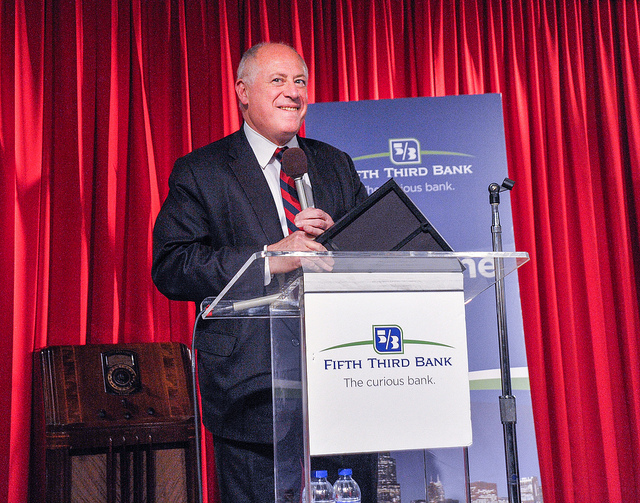Illinois Governor Suspends Lawmakers Pay Over Pension Inaction
By Chuck Sudo in News on Jul 10, 2013 4:30PM
Illinois Gov. Pat Quinn promised last week there would be consequences if the General Assembly didn’t move on pension reform. Quinn announced Wednesday morning he would use his amendatory veto powers to suspend lawmakers’ pay until they draft a bill to come to an agreement to reform the state’s pensions. Quinn amended House Bill 1441, requiring lawmakers to take one unpaid furlough day per month and prohibiting any cost of living adjustments during Fiscal Year 2014. The state’s new fiscal year began July 1.
Illinois has $96 billion in underfunded pension liability, by far the worst of any state. The pension mess has led to downgrades in the state’s credit rating. During the Illinois Legislature’s spring session the House and Senate each passed bills aimed at solving the pension crisis, but couldn’t come to an agreement. A special session of the Legislature June 19 aimed to pass both bills in the hopes one of them would withstand a court challenge.
Quinn gave the General Assembly until July 9 to pass pension reform legislation, a deadline that passed, like scores of others, without an agreement. (It was a bad Tuesday for Quinn in Springfield; the Legislature voted to override his amendatory veto on concealed carry legislation.)
In announcing his move to suspend lawmakers pay, Quinn called the pension morass “an emergency. This is a crisis.”
“They need an alarm bell ringing in their ears. The best way to do that is to hit them in the wallet.”
Illinois' lawmakers earn a base salary of $67,836/year. Some get stipends ranging from $10,327 to $27,477 for leadership and committee posts. Such a move has been done before. Quinn’s predecessor, imprisoned former Gov. Rod Blagojevich, tried to suspend the pay of state lawmakers, statewide officeholders and judges in an attempt to keep salaries static during a budget crisis. The judges challenged Blagojevich’s move and the Illinois Supreme Court sided with the judges. So there’s legal precedent established if the General Assembly seeks to challenge Quinn’s announcement. The Illinois Constitution also prohibits cutting the pay of lawmakers during their term in office. Both legislative chambers could move to override Quinn’s veto, as they did with the concealed carry bill. The House and Senate hold veto-proof majorities, but the Chicago Sun-Times reports the votes in the House aren’t guaranteed.
Democratic gubernatorial candidate Bill Daley was in Springfield during Quinn’s announcement and said, "It is obvious to everyone by now that this governor is long on press conferences and short on results. This media sideshow doesn’t get things done, in fact it stands in the way." And this does appear to be the political equivalent of being given a timeout for bad behavior.
But Quinn said if the Legislature can act when special interest groups come calling, they can use the same urgency for pension reform.
Quinn said the choice for lawmakers is simple: if they can come to an agreement on pension reform, they’ll have their pay reinstated.
